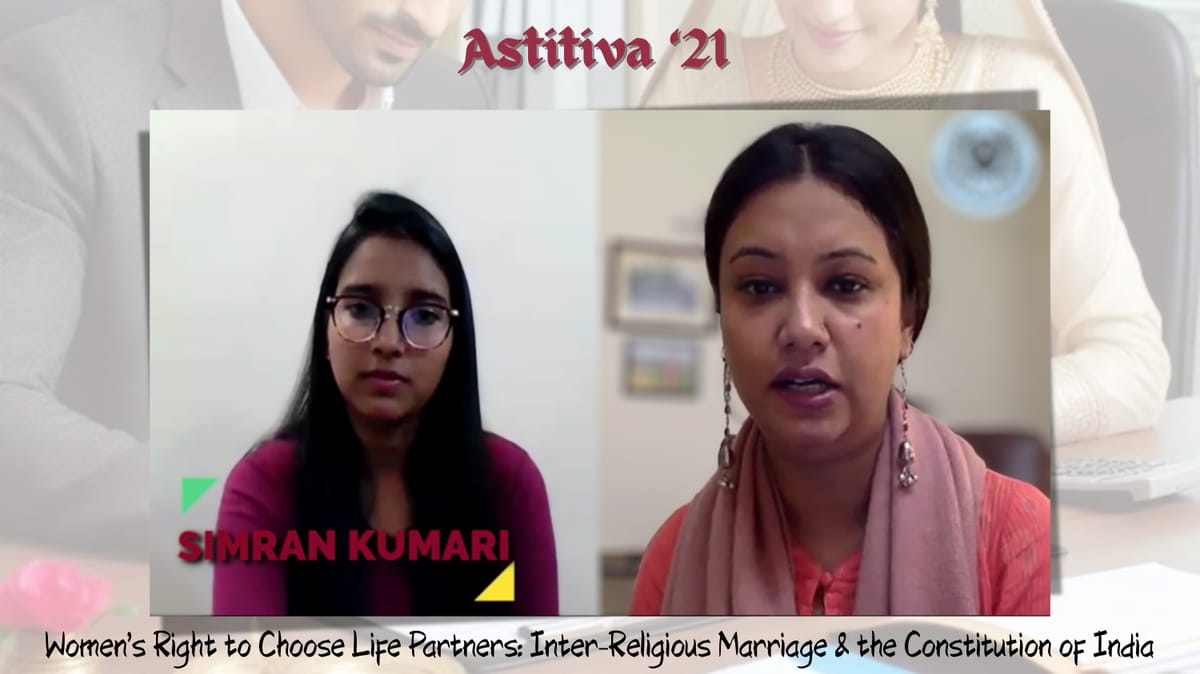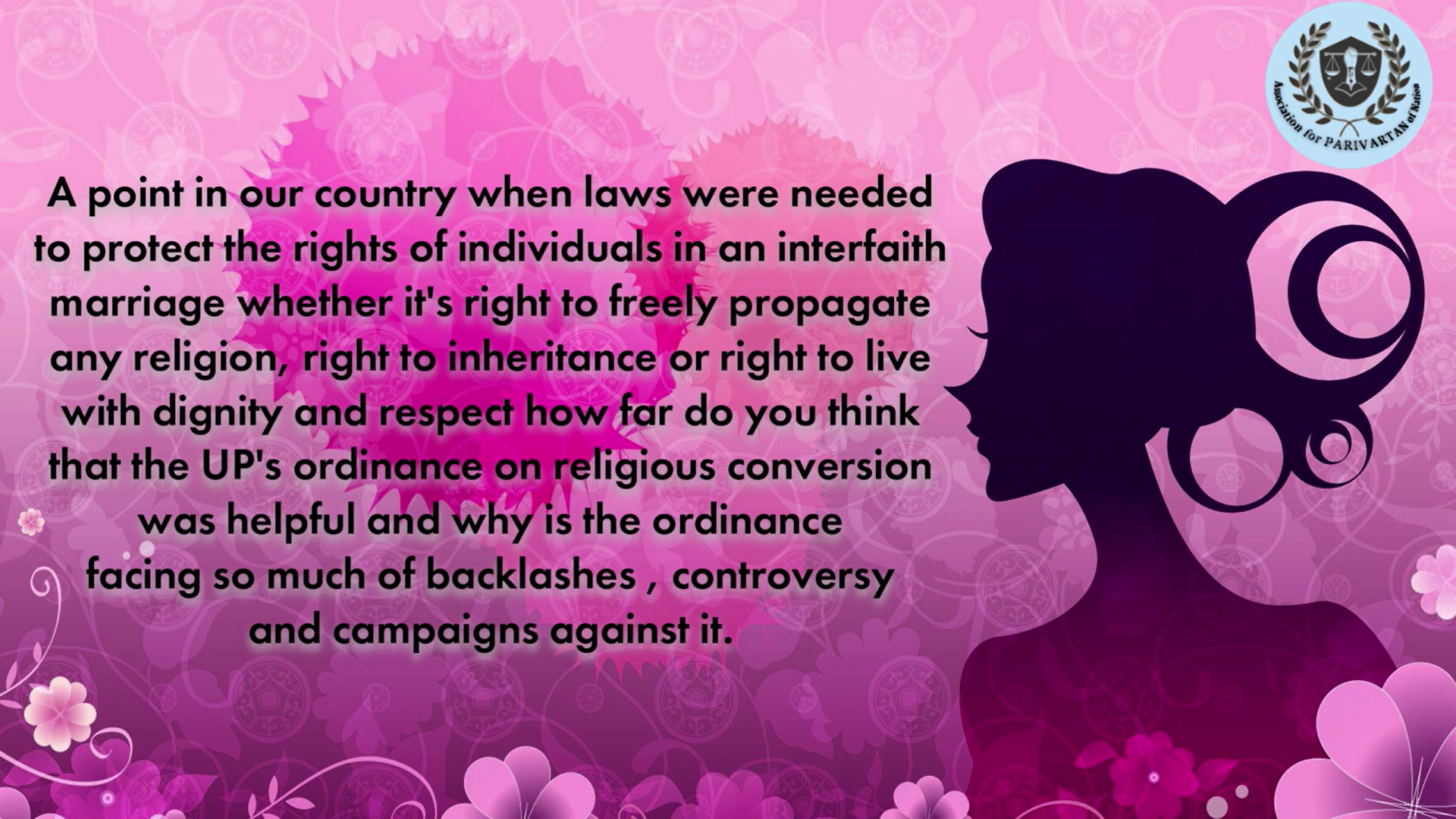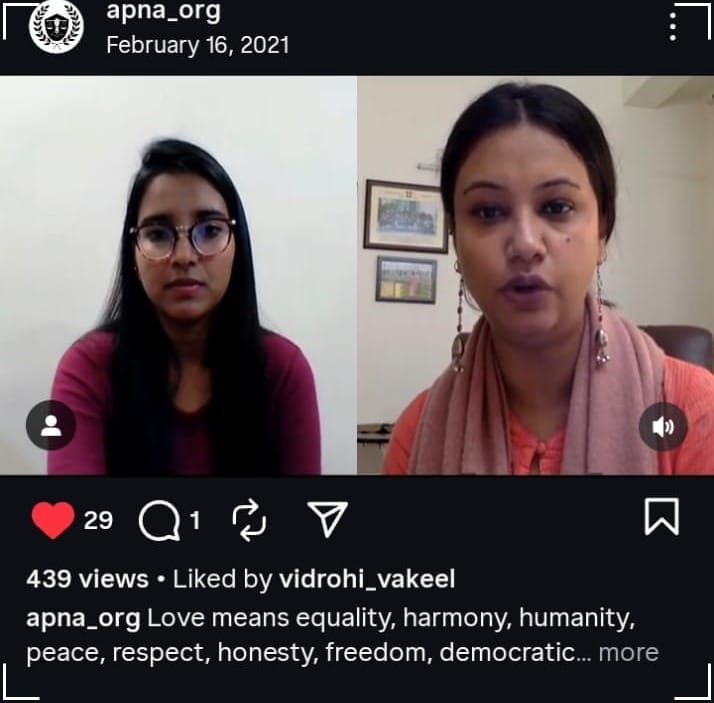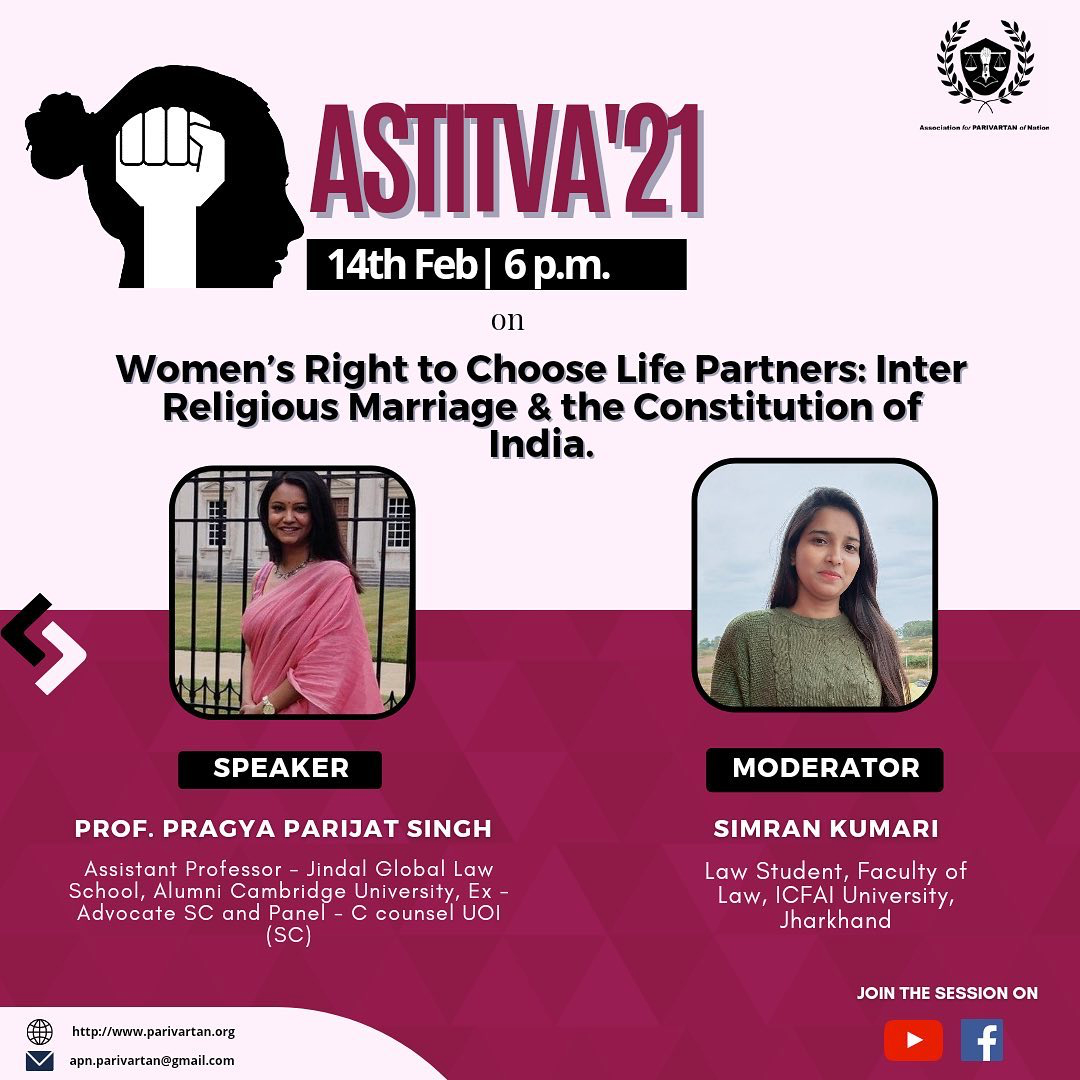Astitiva ‘21
APNA’s Astitva’21 session explored women’s right to choose partners, interfaith marriage, and constitutional freedoms. Prof. Pragya Parijat Singh highlighted women’s autonomy, critiqued social and institutional obstacles, and affirmed that the right to love and marry is constitutionally guaranteed.

Women’s Right to Choose Life Partners: Inter-Religious Marriage & the Constitution of India
On Valentine’s Day, 14th February 2021, the Association for Parivartan of Nation (APNA) organised a powerful session under the banner of Astitva’21, exploring the themes of women’s right to choose their life partners, inter-religious and inter-caste marriages, and the constitutional guarantees of personal liberty. The pre-recorded session was streamed online and has since been viewed by over 1000+ participants across the country.
The session was moderated by Simran Kumari, a law student at the Faculty of Law, ICFAI University Jharkhand, and featured Prof Pragya Parijat Singh of Jindal Global Law School as the keynote speaker. Prof Singh, a Cambridge postgraduate and former practising advocate at the Supreme Court of India, has represented in landmark cases such as Decriminalisation of Begging in Delhi (2018) and Re: Inhuman Condition of 1382 Prisons in India (2018).
Prof Singh began by drawing attention to the conservativeness of Indian society and the blurred line between cultural embrace and cultural enforcement.
“Our Constitution protects individual choice. Yet, society often punishes women for exercising it. The right to life and liberty includes the right to choose one’s partner- this is non-negotiable,” she affirmed.

The discussion turned to the controversial narrative against inter-caste and inter-religion marriage, propagated by extremist groups. Prof Singh emphasised that the term is not rooted in law or fact, but in political propaganda designed to deny women agency while vilifying minority communities.
“When women choose partners across religious lines, conservative groups cloak their disapproval in the language of protection- but what they are really doing is stripping women of autonomy and fanning communal hatred,” Prof Singh explained.
The speaker also critiqued the role of institutions such as the National Commission for Women, which at times has issued statements reinforcing fears around inter-religious marriages. She warned that such narratives legitimise state overreach into personal choices.

Participants actively engaged throughout the session, and many expressed shock at how systemic the suppression of women’s choices has become, while others drew strength from the constitutional protections reiterated by the speaker.
Farhan Ali, a participant from Delhi, wrote:
“This conversation is critical, especially when laws and narratives are weaponised against minorities. It reminded me that the Constitution sees us first as citizens, not as Hindus or Muslims.”
The session concluded with Prof Singh underscoring the responsibility of the state to uphold individual freedoms,
“The state must see its citizens as individuals first. The right to love, to marry, to live freely – these are not privileges granted by society, but rights guaranteed by the Constitution.”

